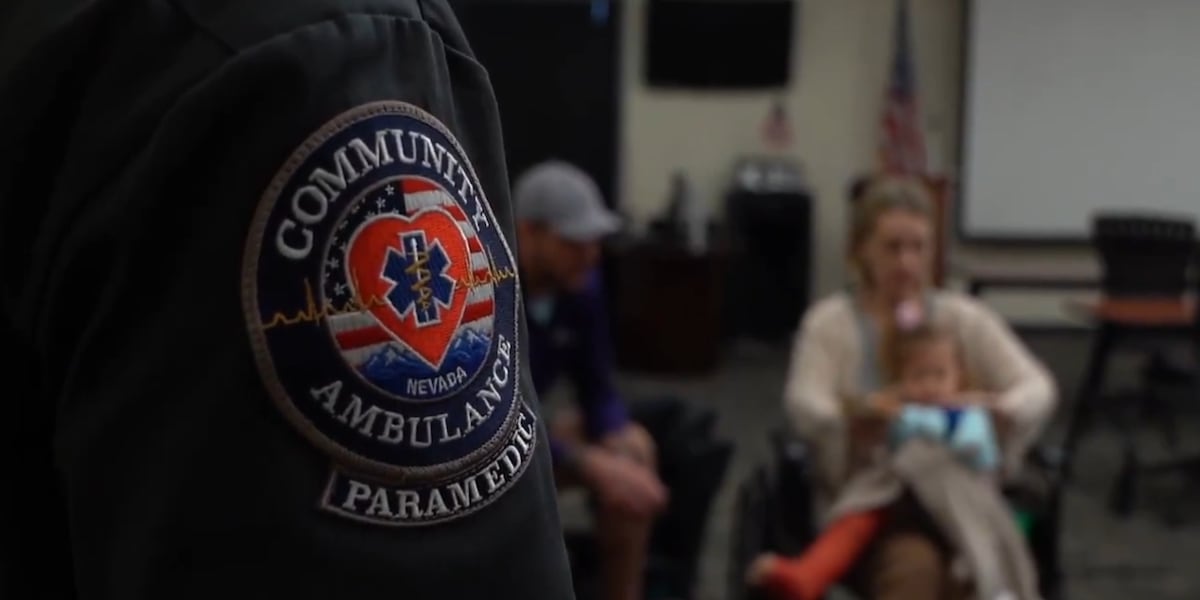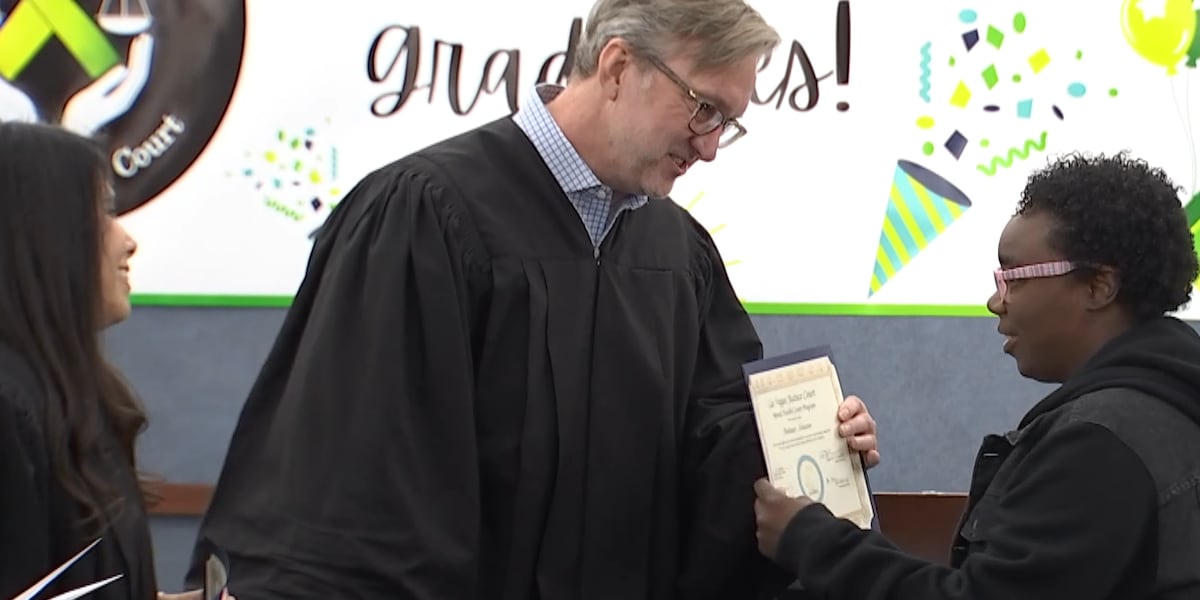LAS VEGAS, Nev. (FOX5) – The homeless crisis in the Las Vegas valley is an issue we come across daily.
Many go in and out of the justice system for misdemeanor crimes without ever getting to the root of their mental health struggles.
After it’s inception in February last year, Monday was the first graduating class of the newly formed Mental Health Court for Justice Court.
This is where FOX5 found 34-year-old Brittany Johnson. She helped with the opening graduation ceremony by reciting the Pledge of Allegiance.
“I was living in a park where people were coming up to me trying to fight me and I would fight back,” she said. “It wasn’t the best choice of things and I was on drugs.”
Johnson said drugs were ruining her life and her mental health was deteriorating. She also faced trespassing and assault charges.
“My initial thought was, ‘Why? I don’t want to do this. It’s another program that’s not going to work,‘” Johnson said.
However, it did work.
Due to her mental health and homeless status, Johnson qualified for mental health court. She tells FOX5 she was approached about the program while waiting at the Clark County Detention Center.
Johnson graduated with nine other participants Monday.
This program for Justice Court was steered by judges Nadia Wood and Eric Goodman.
The judges tell FOX5, majority of the participants are unhoused and unmedicated for their mental illness which likely resulted in their misdemeanor crime.
“Because you were unmedicated in the throws of psychosis, you ended up doing this thing, but when we get you on this you don’t commit this violence,” Wood said.
Before Monday’s graduation ceremony, the two judges sat down only with FOX5.
“What we saw and what we found was a gap for individuals who were committing quality of life crimes. Individuals who are sleeping on the side walk, urinating in public, walking with their pants down. The crime that we typically associate with unhoused,” Wood said.
Victoria Saha: What made you two fight so hard to make this mental health court a reality?
Eric Goodman: I’ve probably been on the bench two or three months. When I started to see this revolving door from CCDC when somebody’s homeless they get picked for a misdemeanor, some homeless crime. They are in the jail for one, two, three days a week or 15 days warehoused there and then released back in the street.
This revolving door ultimately costs the tax payers.
According to a 2024 report to the Clark County Board of Commissioners, it cost $275 a day to house an inmate at CCDC.
That results to $100,375 a year.
This mental health court is another alternative to that.
“It’s just a revolving door. That’s what we are trying to stop is that revolving door for a lot of these individuals. These people aren’t dangerous,” Goodman said.
Through a federal grant, participants are set up in housing with a case manager, who helps them keep track of their medication, counseling and court appearances.
Saha: Is there any part of you as judges that would see the same person over and over again and ask why or how?
Goodman: I still see people 16 years later. I know who they are. I see their name on the calendar and say, ‘Ok, he’s back in front of me.’
Nadia Wood: When you see the individual that you are almost starting to recognize because you have seen them so many times, it’s just can we do something different. How can we change this?
Wood emphasized the participants had to put in the work to make sure they stayed on track with the program.
Monday’s graduation was a result of that.
“I would either be on the streets dead or in jail if it wasn’t for this. I would be on the streets dead from a drug overdose,” Johnson said.
Johnson ended her conversation with FOX5 by reiterating how important it is to not judge a homeless person.
“Don’t judge a book by it’s cover. Don’t judge the homeless by looking at them. We all have a story and it can be a deep story,” Johnson said.
Participants were given the appropriate medication for their mental health needs and were also drug tested throughout the program.
Wood and Goodman are proud that each participant kept up with their sobriety and has not picked up any new charges since starting the mental health court program.
Copyright 2025 KVVU. All rights reserved.





